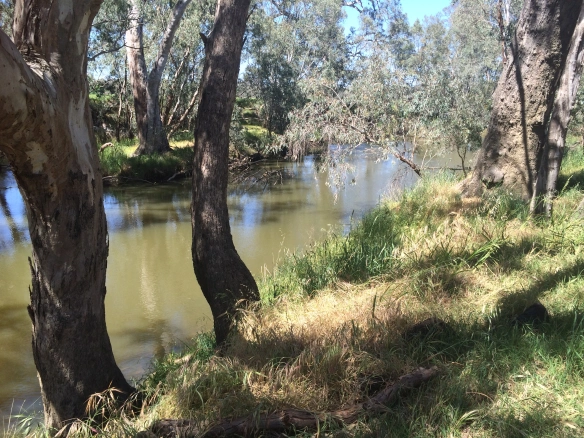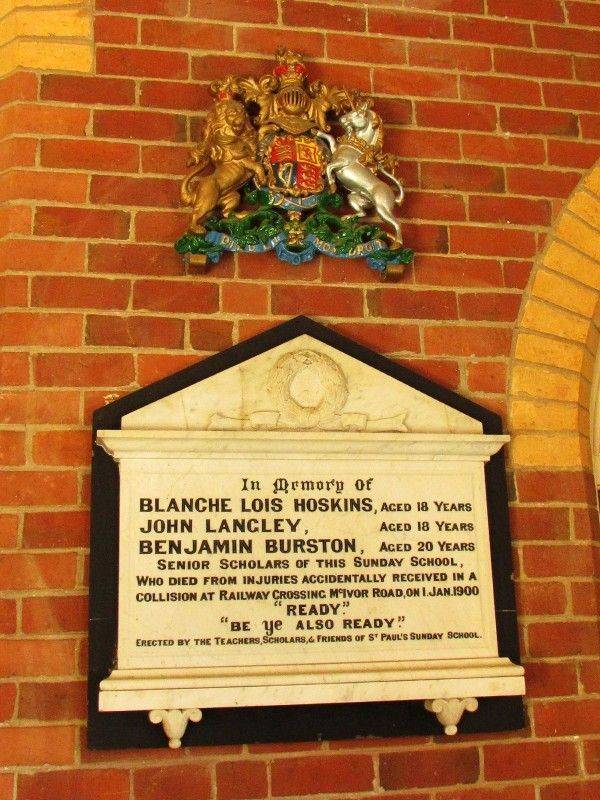The inquest of Patrick Rogers was held at Drake’s Hotel on April 12, 1882 before Robert Strickland JP.
North Western Police District
Axedale
4th April 1882
Report of Constable Feeley, relative to a man found drowned at Axedale. I beg leave to report for the information of the Coroner, that about noon today, a man Rogers, who lived at Axedale, near the bridge over the Campaspe, was found drowned in the river, at the usual place where he used to go for water. Mary Cabey first saw him in the water, his back was not under the water. She told William Shawburn and William Winzar, who took the body out of the water. There are no marks of violence on the body. The deceased’s bucket was found in the water, close to the body. William Smith saw the deceased between 9 and 10 am, the same day, taking wood into his hut.
(signed) Constable Feeley.
There are also witness statements outlining similar details from Mary Cabey, William Shawburn William Winzar, and William Smith
Witness Statement from William Smith, Carpenter, Campaspe River, Axedale.
I have known the deceased Patrick Rogers, whose body is now here lying dead, for about 16 years, during which time he has lived on the banks of the Campaspe River. He lived alone and was about 70 years of age. He was accustomed to walk with a stock and his back was doubled up. Last saw him alive yesterday (Tuesday) morning the 4th instant, at half past 9 o’clock on the roadway near his own place. He was gathering wood to make a fire. In about two hours afterwards, I heard that he had been found drowned in the river. The river bank is about 150 yards from the back of deceased’s place. The bank is very steep and is approached by a small pathway made by deceased himself. The body was found in a few inches of water, quite dead. On being searched, five shillings was found in deceased’s pocket.
(his mark x ) William Smith
Witness Statement from Edwin Hinchcliff, legally qualified medical practitioner, residing at Sandhurst
I have this day made a post mortem examination of the body of Patrick Rogers, here lying dead. It is that of a man between 60 and 70 years of age, stout and well nourished. There was a small contused wound on the left lower eyelid, but no other mark of violence. I found the right lung congested in the lower lobe but there was no trace of water in the bronchi. The left lung was firmly adherent to the walls of the chest and was in the same state of congestion of the right lung. The blood in the lungs was very fluid and dark colored. I removed the larynx and trachea. On opening out the larynx, I found this small piece of a clay tobacco pipe (produced) about half an inch long. It was stuck across the vocal chords. This by it’s presence would lead to asphyxia, which would cause of deceased’d death. There was no mud or trace of foreign matter in the mouth, larynx or stomach. There was no evidence of drowning.
(signed) Edwin Hinchcliff
Coroner’s Finding
Re: Patrick Rogers, deceased.
I find that on the fourth day of April, 1882, at the Campaspe River, Axedale, the deceased, Patrick Rogers died from asphyxia caused by the deceased accidentally swallowing the stem of a clay pipe (tobacco)
Dated the 5th day of April, 1882 at Axedale.

©2022 copyright. All rights reserved axedalethenandnow.com







